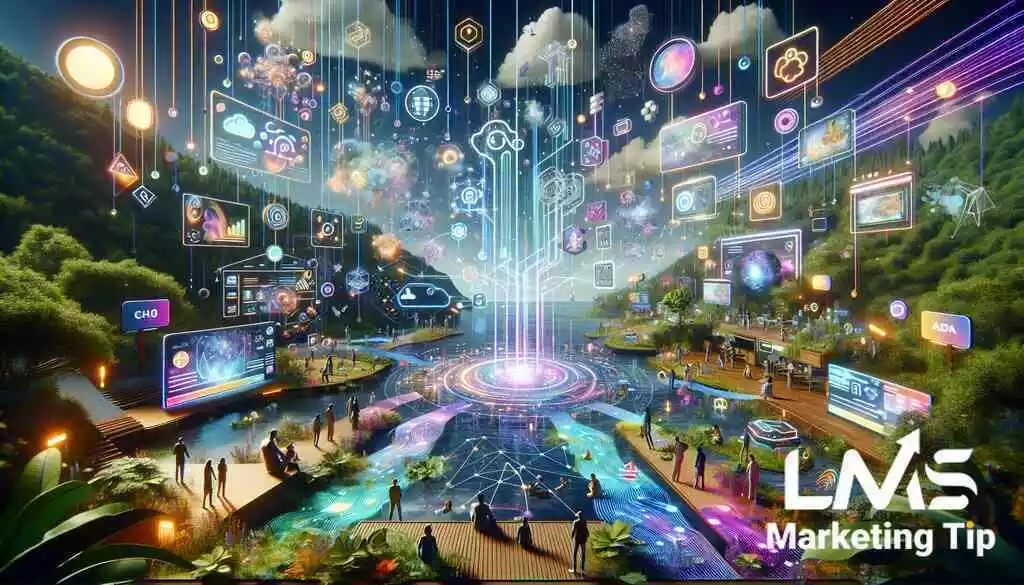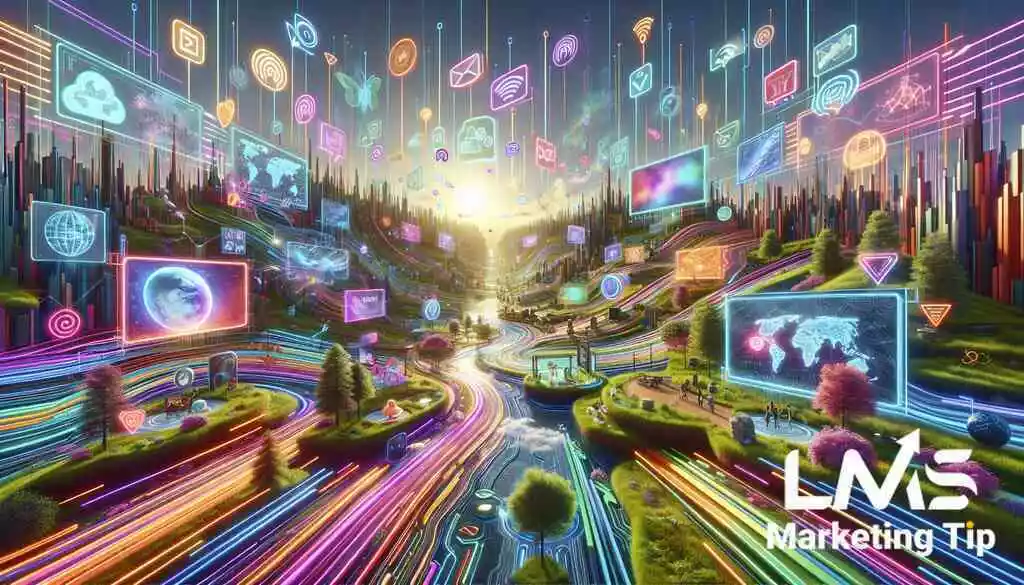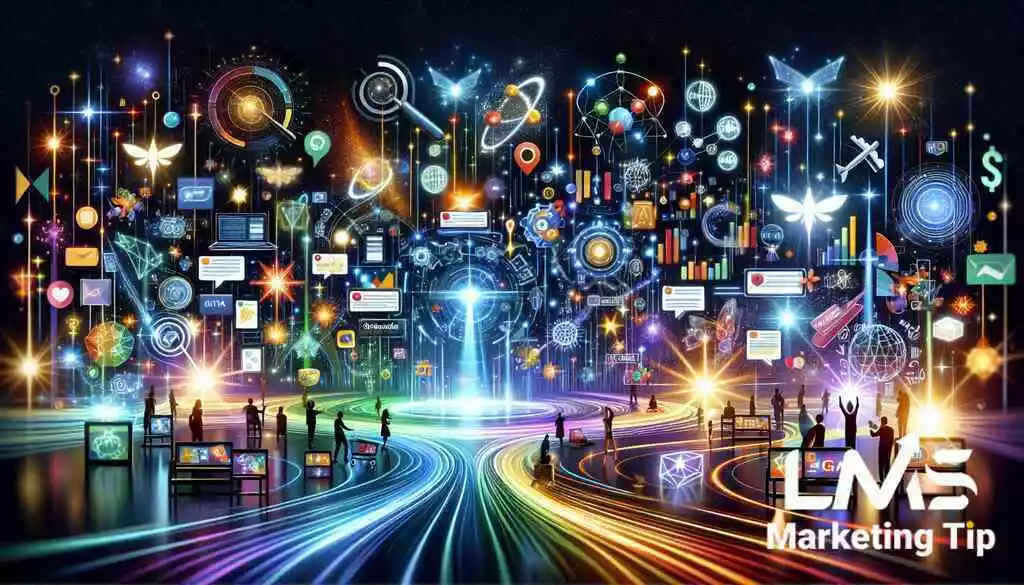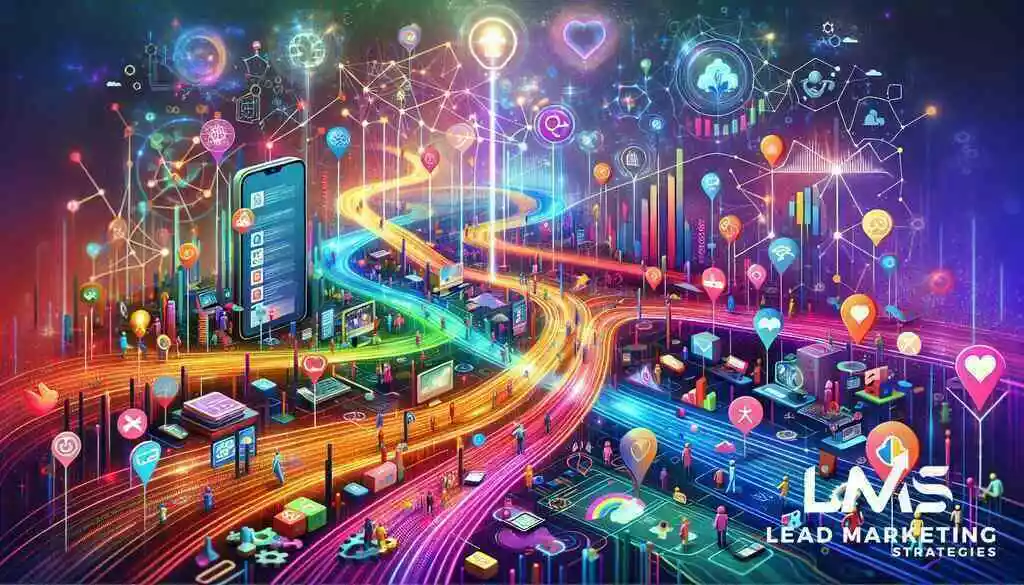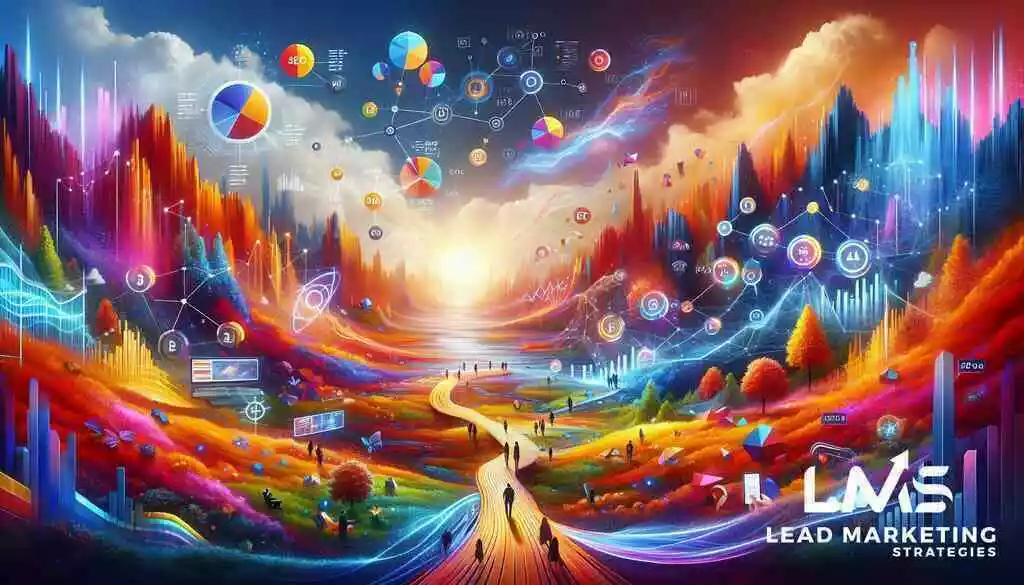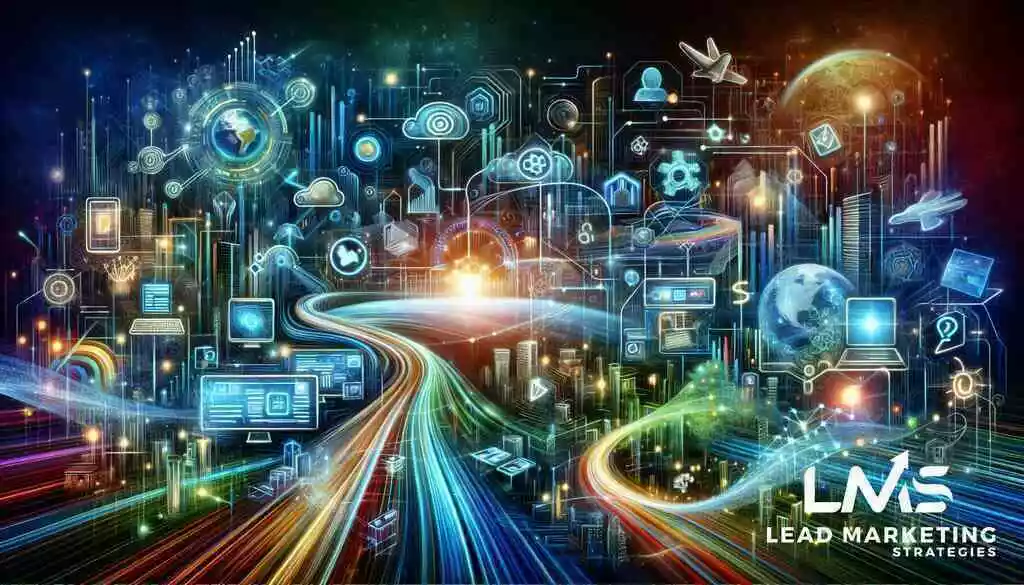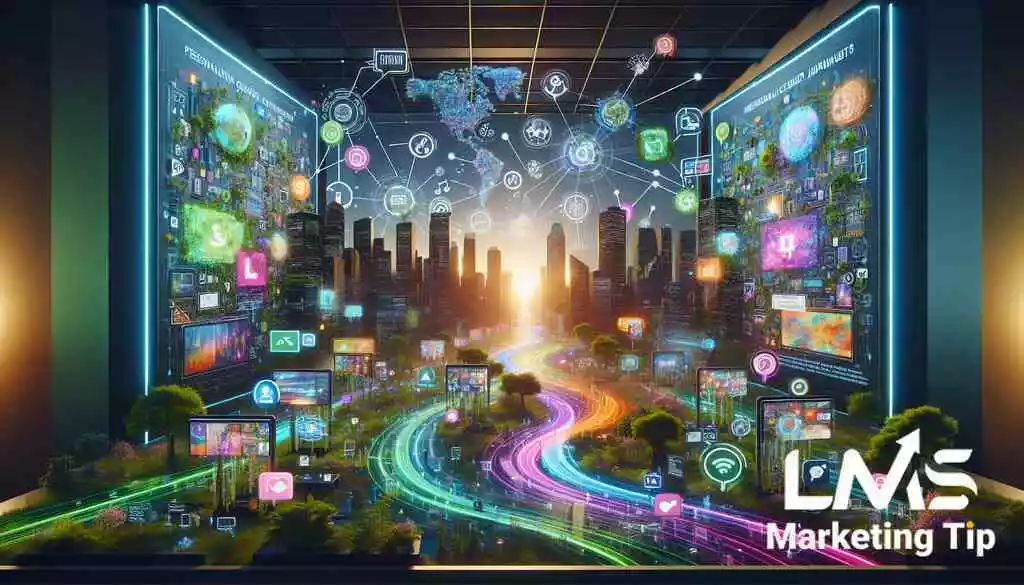
Unlocking the Future: An Introduction to Emerging Social Trends in 2025
2025: A Year of Digital Renaissance
As we approach 2025, we find ourselves at the cusp of a digital renaissance, a period poised with transformative opportunities for businesses. The rapid pace of technological advancements is reshaping society, unveiling unprecedented potential in the digital marketing arena. Companies must embrace these emerging digital trends in 2025 to stay competitive and relevant. Innovations such as augmented reality and artificial intelligence are not just buzzwords; they are catalysts driving forward-thinking marketing strategies. In 2025, businesses will harness these tools to engage more meaningfully with their audiences, transforming how we perceive and interact with brands.
Why Social Trends Matter in Marketing
In the evolving landscape of the digital economy, understanding social trends is paramount for crafting effective marketing strategies. Social trends provide valuable insights into consumer preferences, enabling businesses to tailor their approaches and resonate with their target audience. The rise of content creators, for example, has reshaped traditional marketing paradigms, spotlighting the importance of authenticity and relatability. By aligning marketing efforts with societal shifts, brands can foster deeper connections, enhance brand loyalty, and secure a competitive edge. Therefore, keeping a keen eye on these trends is not just beneficial but essential for thriving in a dynamic digital marketplace.
Anticipating the Evolution of Consumer Behavior
The evolution of consumer behavior is accelerating with technological advancements, necessitating a strategic approach to marketing in 2025. Consumers are becoming increasingly conscious of sustainability, personal data privacy, and authentic brand interactions. Businesses must anticipate these shifts by adopting agile strategies and leveraging consumer behavior analysis to predict future expectations. Hyper-personalization in marketing will lead this transformation by catering to individual consumer needs and preferences in real-time. Marketers who anticipate and adapt to these behavioral changes will position themselves at the forefront, meeting consumers where they are and ensuring their relevance in an ever-evolving marketplace.
The Social Media Metamorphosis: New Dimensions in Online Interaction
Rise of Peers: Influence of Content Creators 2025
In 2025, content creators wield immense power in influencing consumer choices through authentic narratives and engaging storytelling. Their rise has reshaped marketing paradigms, compelling brands to collaborate with these digital influencers to maintain relevance. As Gen Z becomes a dominant consumer force, the clout of content creators intensifies. Leveraging insights from platforms like Instagram or TikTok means marketers must adapt to the peer-driven marketing landscape where genuine engagement holds sway. Understanding the content creators’ influence in 2025 is pivotal for crafting robust influencer marketing strategies.
From Simply Liking to Truly Engaging: Community-Driven Marketing
The future of social media marketing transcends beyond passive interactions; it’s about building vibrant communities. Brands are adopting a community-driven approach, fostering environments where users share ideas, experiences, and brand loyalty. This shift towards community-focused brand marketing emphasizes interactions that resonate emotionally, generating organic advocacy. Marketers are tasked with designing campaigns that emphasize belonging and shared purpose, driving deeper connections. By nurturing these communities, brands can transform followers into brand advocates whose genuine support speaks volumes.
Augmented and Virtual Reality: Redefining User Experiences
In 2025, augmented and virtual reality technologies will redefine the boundaries of user engagement, providing immersive brand experiences. These innovations are pushing marketing to new heights by allowing consumers to interact with products in virtual environments. Brands are using AR tools to create interactive, real-world experiences that captivate and inform consumers. Similarly, VR advertising techniques provide dynamic storytelling and richer brand narratives, attracting tech-savvy audiences. As these technologies evolve, their integration into marketing strategies becomes vital for brands aiming to offer unparalleled consumer experiences.
AI and Social Media: The Dawn of Intelligent Interaction
Artificial intelligence is revolutionizing how brands engage with consumers on social media, offering insights-driven, personalized communication. The rise of AI integration in social media heralds an era of sophisticated interaction, allowing brands to predict trends and understand consumer behavior. AI tools analyze vast data points to refine marketing messages, aligning them with user preferences and behaviors. The use of AI enhances personalization and engagement, driving improved ROI for digital marketing campaigns. As intelligent interaction becomes the norm, brands must integrate AI to create seamless, effective marketing strategies.
Decoding Consumer Psyche: Trends Driving Market Behavior
Hyper-Personalization: Tailoring the Marketing Experience
In 2025, hyper-personalization is at the forefront of marketing strategies, reshaping how brands connect with their audiences. With advancements in AI and data analytics, businesses can deliver tailored content, products, and services that resonate on a deeper level. Hyper-personalization in marketing allows marketers to anticipate consumer needs, creating customized experiences that foster brand loyalty. See more on Defining Top 2024 E-commerce Trends by Marketing Tip. This evolution empowers brands to determine specific consumer desires, enabling them to craft messages that feel uniquely relevant. By focusing on enhanced personalization in marketing, businesses can ensure their target audiences receive messages that are not only heard but felt and remembered.
Sustainability Takes Center Stage: Eco-Conscious Marketing
The demand for sustainability-driven marketing practices is growing as more consumers align with eco-conscious values. Brands are increasingly integrating sustainability into their core marketing strategies, responding to the call for greener, more ethical practices. As this trend escalates, businesses are held accountable by consumers who prioritize environmental stewardship. Eco-conscious marketing not only appeals to this conscientious demographic but also differentiates brands in a crowded marketplace. As consumers become more informed, transparency and sustainability are not just preferences-they are expectations that drive purchase decisions and brand loyalty.
The Gen Z Effect: Understanding a New Generation of Consumers
Gen Z’s emergence as a dominant consumer force is pivotal, steering trends and reshaping digital marketing landscapes. This generation is characterized by digital nativity, valuing authenticity, diversity, and social responsibility in brands. Marketing to Gen Z requires a nuanced understanding of their preferences and digital behaviors, necessitating adaptive strategies that prioritize engagement and transparency. Brands must genuinely resonate with Gen Z’s values to cultivate connections that translate into loyalty. Understanding the Gen Z effect is crucial for long-term strategic planning, as their influence continues to define modern marketing dynamics.
Interactions Without Borders: Cross-Platform Marketing
Interactions without borders illustrate the power of cross-platform marketing techniques, enabling businesses to reach consumers seamlessly across various online channels. In 2025, the focus is on integration and coherence, ensuring consistency in brand messaging no matter where a consumer engages. Cross-platform marketing allows brands to maintain a presence in various digital arenas, from social media to mobile apps, optimizing reach and engagement. By adopting these techniques, businesses can enhance their visibility and impact, creating unified experiences that strengthen brand recognition and consumer trust. This approach ensures that marketing efforts are not only widespread but interconnected, leveraging the strengths of multiple platforms to maximize effectiveness.
Marketing in a Digitized World: Strategies for Success
Omni-Channel Strategies: A Harmonized Approach Lead Marketing’s Blueprint for SEO Mastery in NY
In 2025, the concept of omni-channel marketing is indispensable, marking a shift towards a seamless consumer experience across all platforms. This unified approach ensures a coherent narrative, whether it’s on social media, websites, or physical stores. Brands that master this strategy optimize interactions by integrating diverse communication channels, enhancing customer engagement. Through cross-platform marketing techniques, businesses achieve greater reach and consistency, ensuring their message resonates across every touchpoint. By crafting a cohesive digital marketing plan, organizations can deliver a harmonious brand experience, establishing both trust and loyalty.
Building Loyalty Through Community and Content
The driving force behind successful marketing strategies in the digital realm is building robust community ties and delivering compelling content. Creating immersive experiences transitions consumers from passive followers to active brand advocates. By fostering a sense of belonging, community-focused brand marketing emerges as a formidable tool. Brands leverage interactive content strategies to kindle meaningful interactions and nurture loyalty. Social media platforms provide fertile ground for cultivating these communities, enabling brands to showcase authenticity and connect on a deeper level. By prioritizing user-generated content and encouraging genuine participation, businesses enhance brand loyalty and advocacy.
Measurable Impact: Data-Driven Marketing Decisions
In an era characterized by vast information flows, making data-informed marketing decisions is non-negotiable for brands seeking to succeed in 2025. Advanced analytics provide insights into consumer behavior, empowering businesses to fine-tune their strategies. By leveraging tools for enhanced personalization in marketing, companies can optimize their campaigns, ensuring better alignment with their audience’s preferences. This foresight into digital marketing allows organizations to anticipate market shifts and adjust their tactics in real time. The emphasis on measurable results not only strengthens marketing efficacy but also fosters informed decision-making, resulting in impactful strategies that yield quantifiable outcomes. Look into Exploring Content Evolution with Lead Marketing Strategies.
Exploring the Dynamics of Social Commerce
The emergence of social commerce signifies a transformative phase in marketing, where transactions occur directly within social platforms. This trend is ushering in a new era wherein digital spaces merge seamlessly with buying experiences. Businesses adopting this model benefit from the confluence of social interaction and commerce, offering consumers a streamlined purchasing journey. Strategies for digital transformation highlight the potential of social commerce to boost engagement and sales. By integrating shopping functionalities into social media, brands can meet consumers where they already spend significant time, enhancing convenience and fostering conversions. Navigating this landscape necessitates agility and innovation as businesses harness these platforms to elevate their digital commerce activities.
Concluding Thoughts: Navigating the New Marketing Landscape
The Path Forward: Embracing Innovation and Adaptability
As we step into 2025, the marketing landscape demands a renewed focus on innovation and adaptability. The blend of technological advancements and shifting consumer attitudes provides an opportunity for brands to reinvent themselves. Marketing professionals must consistently explore innovation in marketing 2025 to stay competitive. Being proactive rather than reactive will enable companies to capitalize on emerging trends. Flexibility in marketing strategies is crucial to adjusting swiftly to changes, ensuring that brands remain aligned with consumer expectations and ahead of their competitors.
Integrating Emerging Trends into Marketing Plans
Incorporating emerging trends requires a multifaceted approach. Digital marketers must use foresight to integrate new tools and techniques seamlessly into existing strategies. By methodically evaluating these trends, brands can develop robust plans that enhance their digital presence. Establishing a framework for examining and adopting digital innovations will facilitate successful integration. Leveraging trends such as hyper-personalization and AI-driven insights ensures that brands can refine their understanding of the target audience. Aligning marketing plans with emerging technologies creates pathways toward sustained growth and relevance in a saturated market.
Final Reflections: Success in an Ever-Evolving Digital Era
Navigating the digital era in 2025 is challenging yet filled with unparalleled opportunities. Brands that successfully integrate innovative technologies and align with consumer values will thrive. Digital marketing agencies must focus on data-informed marketing decisions to craft strategies that are not only impactful but also measurable. As businesses leverage these tools, they build resilience against future uncertainties. Embracing change, adopting an agile mindset, and consistently prioritizing consumer needs will be paramount for brands aiming to flourish in this era of transformation. The future belongs to those ready to explore uncharted marketing territories with creativity and confidence.
Frequently Asked Questions
Question: How can businesses leverage augmented reality marketing in 2025 to enhance brand engagement?
Answer: In 2025, augmented reality marketing offers businesses a unique avenue to captivate and engage their audience through immersive experiences. By integrating AR into their marketing strategies, companies can allow consumers to interact with their products in a virtual environment, creating memorable and informative brand encounters. This technology not only enhances engagement but also builds a strong emotional connection between the brand and consumers. As the digital landscape evolves, businesses should focus on developing AR campaigns that are interactive, informative, and aligned with their marketing goals, thus ensuring a competitive edge in the marketplace.
Question: According to the blog “What Are 2025’s Emerging Social Trends with Marketing Tips?
Answer: Influencer marketing 2025 is pivotal in shaping consumer behavior by leveraging the authenticity and relatability of content creators. As highlighted in the blog “What Are 2025’s Emerging Social Trends with Marketing Tip?” content creators have become key influencers in marketing strategies, resonating with audiences through genuine storytelling. By collaborating with influencers, brands can tap into their follower base, thus amplifying their reach and relevance. Check out Lead Marketing’s Deep Dive into Cyber Security Branding. This peer-driven approach encourages organic advocacy and fosters deeper consumer connections, making it an essential component of modern marketing strategies.
Question: How can businesses use data-driven marketing decisions to stay ahead in digital marketing foresight?
Answer: Data-driven marketing decisions are crucial for businesses seeking to stay ahead in digital marketing foresight. By leveraging advanced analytics, companies can gain valuable insights into consumer behavior and preferences, allowing them to tailor their strategies for maximum impact. This approach ensures that marketing campaigns are not only practical but also align with emerging consumer trends. Look into Understanding Social Media Impact by Lead Marketing in NY. By focusing on measurable results, businesses can refine their tactics in real time, ensuring their offerings remain relevant and competitive in an ever-evolving marketplace.
Question: How can businesses implement cross-platform marketing to enhance brand loyalty strategies?
Answer: Implementing cross-platform marketing is essential for enhancing brand loyalty strategies, as it allows businesses to maintain a consistent presence across various digital channels. By delivering a unified brand message on platforms such as social media, mobile apps, and websites, companies can ensure seamless interactions with their audience. This approach strengthens brand recognition and trust, fostering deeper connections with consumers. Deve into Marketing Tip’s Strategies for Enhancing Bank Dynamics. As digital marketing evolves, leveraging cross-platform techniques enables brands to optimize their reach and engagement, ultimately driving loyalty and advocacy among their target audience.
Question: In what ways does hyper-personalization in marketing contribute to consumer behavior trends in 2025?
Answer: Hyper-personalization in marketing plays a significant role in driving consumer behavior trends in 2025 by delivering tailored experiences that resonate deeply with individuals. With advancements in AI and data analytics, businesses can create customized content, products, and services that meet specific consumer needs. This approach not only fosters brand loyalty but also enhances consumer satisfaction by making interactions more relevant and engaging. As consumers in 2025 demand personalized experiences, hyper-personalization allows brands to anticipate and fulfill these desires, positioning themselves as leaders in a competitive market. See more on Mastering the Science of Target Audience Engagement.
